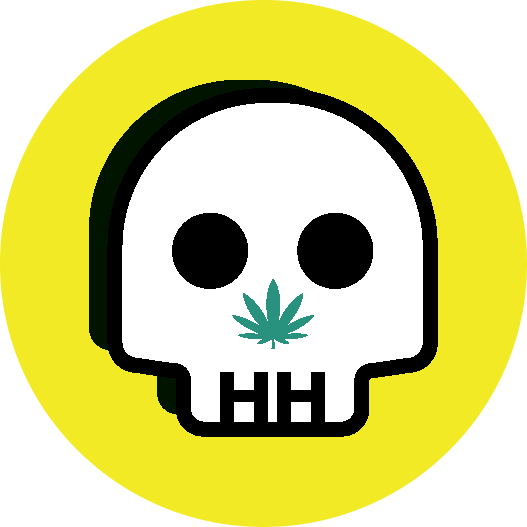Understanding Leisure Cannabis
Leisure cannabis is used for enjoyment or relaxation rather than medicinal purposes. It contains a compound called THCa, which is the precursor to THC, the psychoactive component of cannabis. When THCa is heated, it transforms into THC, producing the euphoric effects that recreational users seek. Understanding the differences between recreational and medical cannabis is essential, as they serve distinct purposes in the realm of cannabis consumption.

What is THCa?
THCa is the precursor to THC, the compound in cannabis that produces a high. When cannabis plants are harvested, they contain THCa, which does not have psychoactive effects until it is heated through smoking, vaping, or cooking. This process, known as decarboxylation, converts THCa into THC. THCa is believed to have potential health benefits, including anti-inflammatory and neuroprotective properties.
THCa vs. THC: Key Differences
THCa and THC are both forms of cannabis compounds, but they have different properties. THCa is the acidic form of THC found in raw cannabis plants. It is not psychoactive, meaning it does not produce a "high" effect. On the other hand, THC is the psychoactive compound that is created when THCa is heated through a process called decarboxylation. This is why smoking or heating cannabis activates THC, resulting in its psychoactive effects. Understanding the difference between THCa and THC is essential when exploring the effects of cannabis products.
The Effects of THCa on the Body
THCa, or tetrahydrocannabinolic acid, is a compound found in raw cannabis plants. When heated, THCa converts to THC, the psychoactive component in cannabis. Some potential effects of THCa on the body include anti-inflammatory properties, antiemetic qualities (reduces nausea and vomiting), and potential neuroprotective benefits. However, research is ongoing to fully understand how THCa interacts with the body and its specific effects.
Benefits of THCa
THCa offers various potential benefits, including anti-inflammatory and neuroprotective properties. It may also help with nausea and appetite stimulation. Some studies suggest it could be beneficial for neurological disorders and chronic pain. Keep in mind that more research is needed to fully understand the extent of THCa's benefits.
Risks and Side Effects
THCa is generally considered safe when used in moderation. However, consuming large amounts of THCa can lead to potential side effects like nausea, dizziness, and paranoia. It's essential to be aware of these risks and start with a low dosage if you're new to using THCa products. Regular consumption of high doses of THCa may also lead to dependency and cognitive impairment. If you experience any adverse effects, it's crucial to seek medical attention immediately.
Ways to Consume THCa
THCa can be consumed in various ways to experience its effects. You can ingest it by adding raw cannabis leaves or flowers to your smoothies or salads. Another way is to vaporize or smoke THCa through a specialized vaporizer or pipe. Additionally, you can use a tincture to place a few drops under your tongue for quick absorption. Experimenting with different consumption methods can help you find what works best for you.
Legal Status of Leisure Cannabis
Recreational cannabis is legal in several states in the U.S., but it's essential to know that the laws vary by location. Here are some key points about the legal status of leisure cannabis:
- THCA (Hemp) is Federally Legal due to Farm Bill 2018
- Recreational cannabis is legal for adults aged 21 and older in states like California, Colorado, Washington, Oregon, and Nevada.
- Some states only permit cannabis use within private residences and do not allow public consumption.
- It remains illegal at the federal level, categorized as a Schedule I controlled substance.
- Traveling with recreational cannabis across state lines is illegal, even between two states where it is legal.
- Always verify the legal status of cannabis in your specific location before using or purchasing.
Dosage Recommendations
When it comes to consuming THCa, dosage is crucial. Start with a low dose to gauge how your body reacts. It's suggested to begin with 1-2 milligrams of THCa and increase gradually as needed. Remember, the effects of THCa can vary from person to person, so it's essential to find the right dosage that works for you.
Conclusion: A Summary of THCa and Its Effects
THCa is a non-intoxicating compound found in cannabis. It has potential health benefits, including anti-inflammatory and neuroprotective effects. Some studies suggest that THCa may help with nausea, appetite stimulation, and pain relief. However, more research is needed to fully understand its effects on the body. It's important to note that everyone's response to THCa may vary, so it's essential to start with small doses and monitor how your body reacts. If you're considering using THCa for medicinal purposes, it's best to consult with a healthcare professional to ensure it's safe for you.


Share:
The Benefits of Switching to Pocket Vaporizers for On-the-Go Aromatherapy
Top Shelf THCa Flower: From Cultivation to Consumption